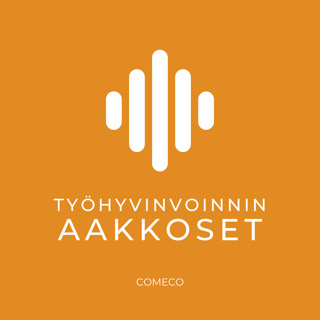
84: Piace in the past - part II
I liked the pasta, I liked that bread… learn how to talk about things you liked in the past Learn about our Online Italian School and get a free mini lesson every week: https://joyoflanguages.online/italian-school Subscribe to our new Youtube channel: https://www.youtube.com/@joyoflanguages.italian?sub_confirmation=1 Get the bonus materials for this episode: https://italian.joyoflanguages.com/podcast/italian-podcast-piace-in-the-past-2 Today's Italian words: Ti è piaciuta la cena? = Did you like dinner? Sì, molto = Yes, a lot. Mi è piaciuta la pasta = I liked the pasta. Mi è piaciuto il pane = I liked the bread. E mi sono piaciuti i carciofi = And I liked the artichokes. Mi è piaciutA la pizza = I liked the pizza. Sono = they are Mi sono piaciuti = I liked them (i biscotti) Mi sono piaciute = I liked them (le torte)
24 Touko 20208min

83: Did you like it? How to use piace in the past
I like it = mi piace. It’s simple enough in the present, but in the past, things get a little tricky! Learn how to talk about things you liked in this episode. Learn about our Online Italian School and get a free mini lesson every week: https://joyoflanguages.online/italian-school Get the bonus materials for this episode: https://italian.joyoflanguages.com/podcast/italian-piace-in-the-past Leave a review on itunes: https://podcasts.apple.com/us/podcast/5-minute-italian/id1217040140 Today's Italian words: Qual è l’ultimo film che hai visto = What’s the last film you saw? Qual = which È = is L'ultimo = the last Film = film or movie Che = that Hai = you have visto = seen Ti è piaciuto? = Did you like it? Ti = to you È = it is Piaciuto = pleased Gli è piaciuto = he, they liked it Gli = to him, them È = it is Piaciuto = pleased Le è piaciuto = she, you formal liked it Le = to her, you formal È = it is Piaciuto = pleased Ci è piaciuto = we liked it Vi è piaciuto = you liked it (plural, for speaking to more than one person)
17 Touko 20209min

82: I like it! How to use piace in Italian
Learn about our Online Italian School and get a free mini lesson every week: https://joyoflanguages.online/italian-school Get the bonus materials for this episode: https://italian.joyoflanguages.com/podcast/using-piace-in-italian Practice your Italian in our facebook group: https://www.facebook.com/groups/5.minute.italian Leave a review on itunes: https://podcasts.apple.com/us/podcast/5-minute-italian/id1217040140 Today's Italian words Hai molto in comune con la tua famiglia? = Do you have a lot in common with your family? Hai = you have Molto = a lot In comune = in common Con = with La tua famiglia = your family Dipende = It depends Per esempio = For example Ci piace cucinare = we like cooking Ci = to us Piace = it pleases Cucinare = cooking Ma a mia sorella piace fare i dolci = But my sister likes making desserts Ma = but a mia sorella = to my sister piace = pleases fare = making I dolci = the sweets Mentre a me piace fare la pasta = while I like making pasta Mentre = while A me = to me Piace = pleases Fare = making La pasta = the pasta Ci piacciono i film = we like films Ci = to us Piacciono = they please I film = the films Ci piace la pizza = We like the pizza (lit. to us, it pleases, the pizza) Ci piacciono le pizze = we like the pizzas (lit. to us, they please, the pizzas) A me piacciono i film fantascienza, e a mia sorella piacciono i film Disney = I like sci fi films, while my sister likes Disney films. A me = to me Piacciono = they please I film = the films Fantascienza = sci fi E = and A mia sorella = to my sister Piacciono = they please I film Disney = Disney films E a tua mamma? = And your mom? (lit. And to your mom?) Le piacciono i film classici, come cantando sotto la pioggia = She likes classic films, like singing in the rain. Le = to her Piacciono = they please I film = the films Classici = classic Come = like Cantando = singing Sotto = under La pioggia = the rain A lei = to her A me piace = I like it (lit. to me, it pleases: full, for emphasis) Mi piace = I like it (lit. to me, it pleases: short, most common) A te piace = You like it (lit. to you, it pleases: full, for emphasis) Ti piace = You like it (lit. to you, it pleases: short, most common) A lei piace = She likes it (lit. to her, it pleases: full, for emphasis) Le piace = She likes it (lit. to her, it pleases: short, most common) A lui piace = He likes it (lit. to him, it pleases: full, for emphasis) Gli piace = He likes it (lit. to him, it pleases: short, most common) A loro piace = They like it (lit. to them, it pleases: full, for emphasis) Gli piace = They like it (lit. to them, it pleases: short, most common) A noi piace = We like it (lit. to us, it pleases: full, for emphasis) Ci piace = We like it (lit. to us, it pleases: short, most common) A voi piace = You plural like it (lit. to you plural, it pleases: full, for emphasis) Vi piace = You plural like it (lit. to you plural, it pleases: short, most common)
26 Huhti 202015min

81: How to talk about lunch and dinner in Italian
In English we can “have lunch” and “have dinner”, but not in Italian! Find out how to talk about having lunch and having dinner in this mini lesson. Learn about our Online Italian School and get a free mini lesson every week: https://joyoflanguages.online/italian-school Get the bonus materials for this episode: https://italian.joyoflanguages.com/podcast/how-to-talk-about-lunch-and-dinner-in-italian Subscribe to our new Youtube channel: https://www.youtube.com/@joyoflanguages.italian?sub_confirmation=1 Practice your Italian in our facebook group:https://www.facebook.com/groups/5.minute.italian Today's Italian words Mangio un panino = I have/eat a sandwich Mangio = I eat Un = a Panino = sandwich Bevo una birra = I drink a beer Bevo = I drink Una = a Birra = beer Pranzare = to have lunch (lit. to lunch) Pranzo = I have lunch (lit. I lunch) Pranzi = You have lunch (lit. You lunch) Pranza = he/she/you formal has lunch (lit. he/she lunches) Pranziamo = We have lunch (lit. we lunch) Pranzate = You plural have lunch (lit. you plural lunch) Pranzano = They have lunch (lit. they lunch) Pranzo all’una = I have lunch at one Pranziamo all’una = We have lunch at one In Italia pranziamo all’una = In Italy, we have lunch at one In Italia pranzano all’una = In Italy, they have lunch at one In Italia pranzano a casa = In Italy, they have lunch at home Cenare = to have dinner (lit. to dine) Ceno = I have dinner (lit. I dine) Ceni = You have dinner (lit. you dine) Cena = He/she/you formal has dinner (lit. he/she dines) Ceniamo = We have dinner (lit. we dine) Cenate = You plural have dinner (lit. you plural dine) Cenano = they have dinner (lit. they dine) Ceno alle otto = I have dinner at eight Ceniamo alle otto = We have dinner at eight In Italia ceniamo alle otto = In Italy, we have dinner at eight In Italia cenano alle otto = In Italy, they have dinner at eight In Italia cenano tardi = In Italy, they have dinner late
19 Huhti 202010min

80: How to say "have a coffee" in Italian (and avoid a really common mistake)
In English, you can “have” a coffee or “have” lunch. But Italians don’t say it that way. Find out how to talk about having food and drink. Learn about our Online Italian School and get a free mini lesson every week: https://joyoflanguages.online/italian-school Get the bonus materials for this episode: https://italian.joyoflanguages.com/podcast/how-to-say-have-a-coffee-in-italian Practice your Italian in our facebook group:https://www.facebook.com/groups/5.minute.italian Leave a review on itunes: https://podcasts.apple.com/us/podcast/5-minute-italian/id1217040140 Today's Italian words Prendere un caffè = have a coffee (lit. to take a coffee) Prendere = to take Un = a Caffè = coffee. Cosa prendi? = What are you having? (lit. what are you taking?) Cosa = what Prendi = you take Prendo il pesce = I’m having the fish. Prendo = I take Il = the Pesce = fish Mangio un panino = I have a sandwich (lit. I eat a sandwich) Mangio = I eat Un panino = a sandwich Bevo una birra alle sei = I have a beer at 6 (lit. I drink a beer) Bevo = I drink Una birra = A beer Alle sei = at six o clock Prendo il caffè a casa = I have coffee at home (lit. I take coffee at home) Prendo = I take Il caffè = the coffee A casa = at home Bevo il caffè a casa = I drink coffee at home Prendo una birra = I take a beer Prendo il pesce = I take the fish Mangio un panino = I eat a sandwich Bevo una beer = I drink a beer
22 Maalis 20208min

79: What does “boh” mean?
Ever heard the sound “boh” in Italian and wondered what it meant? Find out what it means and how to use it like a real Italian. Learn about our Online Italian School and get a free mini lesson every week: https://joyoflanguages.online/italian-school Subscribe to our new Youtube channel: https://www.youtube.com/@joyoflanguages.italian?sub_confirmation=1 Get the bonus materials for this episode: https://italian.joyoflanguages.com/podcast/what-does-boh-mean-in-italian Practice your Italian in our facebook group: https://www.facebook.com/groups/5.minute.italian Today's Italian words Sono contenta = I’m happy Cosa mangiamo a pranzo? = What shall we have for lunch? Cosa = what Mangiamo = we eat A = at Pranzo = lunch Boh! = an informal way of saying “I don’t know” (similar to “I dunno”) Non lo so = normal way to say “I don’t know” Non = not Lo = it So = I know Cosa mangiamo a cena? = what shall we have for dinner? Cosa = what Mangiamo = we eat A = at Cena = dinner Boh = I dunno Cosa guardiamo? = what shall we watch? Cosa = what Guardiamo = we watch Boh! Boh = I dunno Bottiglia = bottle Banana = banana Quattro = four Mano = hand
8 Maalis 20208min

78: What does “magari” mean?
Ever heard “magari” in Italian and wondered what it meant? It actually has 2 very different meanings. Once you know them, it’s easy! Learn about our Online Italian School and get a free mini lesson every week: https://joyoflanguages.online/italian-school Get the bonus materials for this episode: https://italian.joyoflanguages.com/podcast/what-does-magari-mean-in-italian Practice your Italian in our facebook group:https://www.facebook.com/groups/5.minute.italian Leave a review on itunes: https://podcasts.apple.com/us/podcast/5-minute-italian/id1217040140 Today's Italian words Cosa fai stasera? = what are you doing tonight? Magari esco con le amiche = maybe I’ll go out with my friends Cosa = what Fai = you do Stasera = this evening Magari = maybe Esco = I go out Con = with
23 Helmi 20208min

77: How to practice speaking Italian: 3 smart ways
Learn 3 smart ways to practice speaking Italian. Learn about our Online Italian School and get a free mini lesson every week: https://joyoflanguages.online/italian-school Subscribe to our new Youtube channel: https://www.youtube.com/@joyoflanguages.italian?sub_confirmation=1 Get the bonus materials for this episode: http://joyoflanguages.com/how-to-practice-speaking-italian Today's Italian words Per imparare a parlare l’italiano = to learn to speak Italian bisogna usarlo! = you need to use it! Per = in order to Imparare = learn A = to Parlare = speak L’italiano = Italian Bisogna = you need to, lit. it’s necessary to Usarlo = use it Ecco tre suggerimenti su come fare = here are three suggestions on how to do it Ecco = here are Tre = three suggerimenti = suggestions Su = on/about Come = how Fare = to do it (lit. to do) Per fare pratica = To practice Per = in order to Fare = to do Pratica = practice Si può parlare da soli = You can speak to yourself. Si può = you can (lit. “one” can) Da soli = alone Si possono cercare persone con cui parlare di persona = you can look for people to speak to in person Oppure online = or online. Si possono = one can, for when the thing is plural Cercare = look for Persone = people Con = with Cui = whom Di persona = in person Oppure = or Online = which is of course, online. Si può mangiare la pizza = you can eat pizza Si possono mangiare gli spaghetti = you can eat spaghetti (gli spaghetti is plural). Si può viaggiare = you can travel Non si può = you can’t (lit. one can’t) Possiamo parlare in italiano? = Can we speak in Italian? Vorrei imparare! = I’d like to learn! Possiamo = can we In = in Italiano = italian Vorrei = I’d like Imparare = to learn
7 Tammi 202030min





















